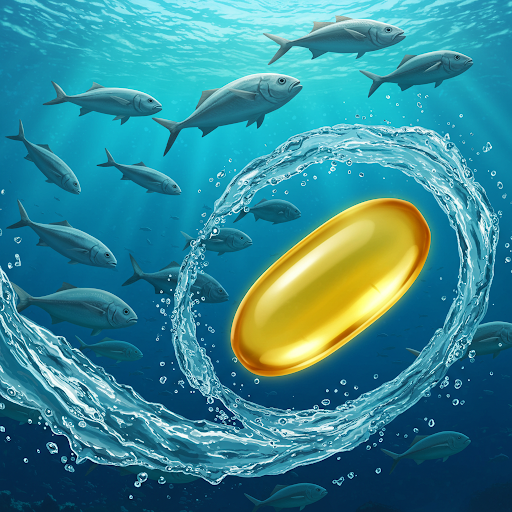
Are Phosphoglyceride DHA Supplements Worth It? Plus, How Much DHA Do You Really Need?
DHA (docosahexaenoic acid) is an essential omega-3 fatty acid critical for brain function, cardiovascular health, and overall well-being. Lately, many DHA supplements on the market claim to be in the form of phosphoglycerides. But what does that mean, and are they superior to other forms of DHA? Furthermore, if you regularly consume fatty fish like salmon or mackerel, do you even need supplementation?
Understanding Phosphoglyceride DHA
Phosphoglycerides are a class of phospholipids that serve as primary components of cell membranes. DHA naturally exists in different forms, including triglycerides, ethyl esters, and phospholipids. Proponents of phosphoglyceride DHA claim that this form offers superior bioavailability and integration into brain and cell membranes compared to standard triglyceride-based DHA.
While some studies suggest phospholipid-bound DHA (such as that found in krill oil) may be more efficiently absorbed than triglyceride-based DHA from fish oil, the real-world benefits remain debated. What matters most is total DHA intake, regardless of the form.
Is Eating Fish Once a Week Enough?
If you consume salmon or mackerel at least once a week, you're getting a significant dose of DHA. Here’s an estimate of DHA content in common fatty fish:
-
Salmon (wild, 3.5 oz) – ~1,200–1,500 mg DHA
-
Mackerel (Atlantic, 3.5 oz) – ~1,400 mg DHA
The general recommendation for DHA intake is around 200-500 mg per day for general health, with higher amounts (up to 1,000 mg or more) suggested for brain and cardiovascular benefits. If your weekly intake from fish is around 1,200-1,500 mg, you’re averaging about 200 mg per day, which is on the lower end of the recommended intake.
Should You Supplement?
Whether you need a DHA supplement depends on several factors:
-
Dietary consistency: If you eat fatty fish 2-3 times per week, you likely meet your needs naturally.
-
Health goals: If you have cognitive concerns, cardiovascular risk factors, or inflammatory conditions, higher DHA intake (from food or supplements) may be beneficial.
-
Omega-6 to Omega-3 Balance: A diet high in processed foods and vegetable oils can create an imbalance, increasing the need for omega-3s to counteract inflammation.
Final Thoughts
While phosphoglyceride DHA supplements might offer enhanced bioavailability, the difference is likely marginal for most people compared to standard fish oil. If you’re already eating fatty fish weekly, your DHA intake is decent, but adding an extra serving or a high-quality omega-3 supplement could help you reach optimal levels—especially if you’re aiming for peak cognitive or cardiovascular health.
If you’re considering supplementation, focus on purity and sustainability. Look for third-party-tested fish oil, algae-based DHA, or krill oil if you want a phospholipid-based source. Ultimately, DHA intake is essential—whether from food or supplements, consistency is key.
